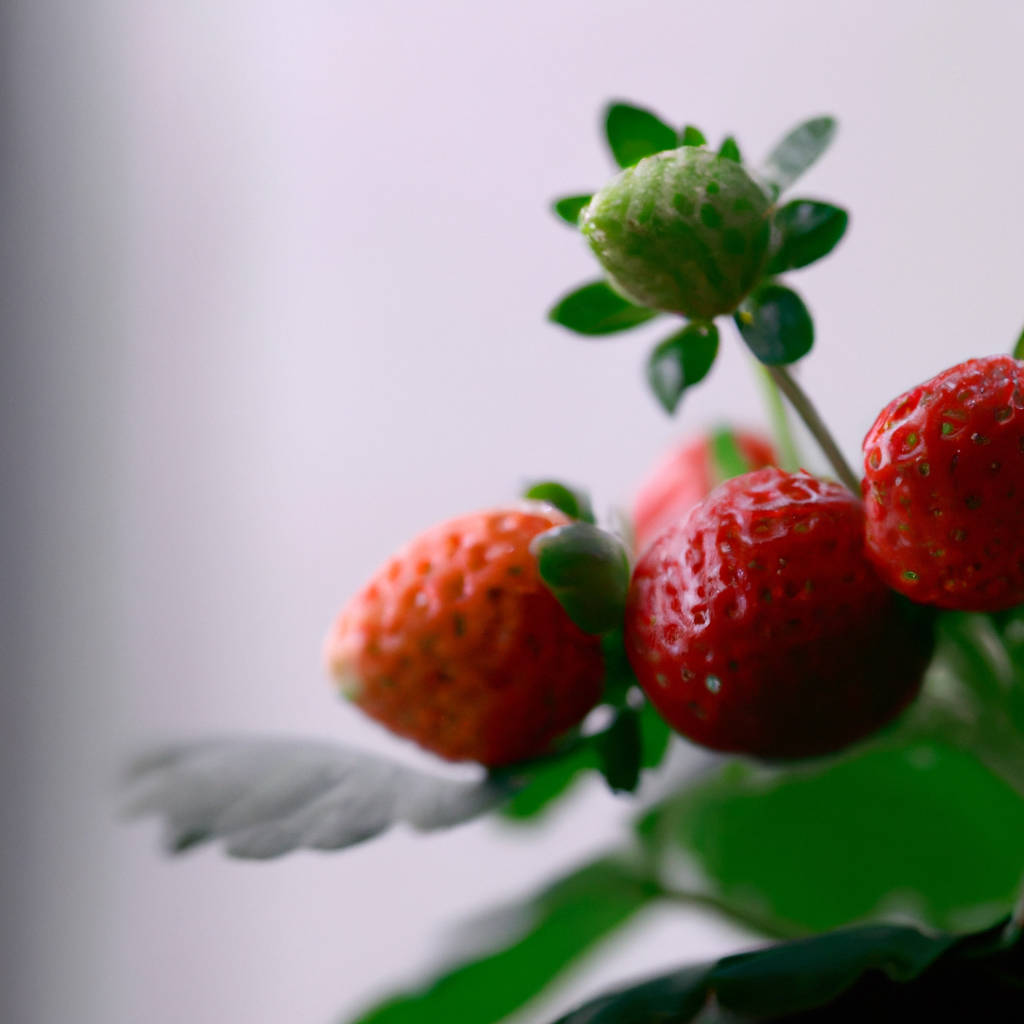Organic strawberries are a delicious and healthy fruit that can be easily grown at home. By following a few simple steps, you can enjoy fresh, juicy strawberries straight from your own garden. In this article, we will explore the process of growing organic strawberries at home, including the use of natural fertilizers, sustainable farming practices, and DIY gardening techniques. We will also discuss the benefits of urban farming and garden-to-table eating.
Getting Started: Planning and Preparation
Before you begin growing strawberries, it is important to plan and prepare your garden space. Here are some key steps to take:
– Choose a sunny location: Strawberries require full sun for at least 6-8 hours per day.
– Test your soil: Use a soil testing kit to determine the pH level of your soil. Strawberries prefer slightly acidic soil with a pH between 5.5 and 6.5.
– Prepare the soil: Remove any weeds or debris from the area where you will be planting. Add compost or other organic matter to enrich the soil and improve drainage.
– Choose the right variety: There are many different types of strawberries, so choose a variety that is well-suited to your climate and growing conditions. Some popular varieties for home gardens include June-bearing, everbearing, and day-neutral.
Planting and Care
Once you have prepared your garden space and chosen your strawberry plants, it is time to plant and care for them. Here are some tips to get you started:
– Plant in the spring or fall: Strawberries can be planted in the spring or fall, depending on your climate. In general, it is best to plant in the spring after the last frost has passed.
– Space the plants correctly: Plant strawberries about 12-18 inches apart, with rows about 2-3 feet apart.
– Water regularly: Strawberries require regular watering, especially during hot, dry weather. Be careful not to overwater, as this can lead to root rot.
– Use natural fertilizers: Organic strawberries thrive on natural fertilizers such as compost, manure, and bone meal. Avoid chemical fertilizers and pesticides, as these can harm beneficial insects and pollinators.
– Mulch to conserve moisture: Cover the soil around your strawberry plants with a layer of mulch to help retain moisture and prevent weed growth.
– Protect from pests: Birds, slugs, and other pests can damage your strawberries. Consider using row covers, netting, or other protective measures to keep them safe.
Harvesting and Enjoying Your Strawberries
After several months of care and attention, your organic strawberries will be ready to harvest. Here are some tips for harvesting and enjoying your fresh, delicious fruit:
– Pick when ripe: Strawberries are ready to pick when they are fully ripe and red all over. Avoid picking them too early, as this can affect their flavor and texture.
– Store properly: If you are not going to eat your strawberries right away, store them in the refrigerator in a sealed container.
– Use in a variety of ways: Organic strawberries are a versatile fruit that can be used in many different recipes, from smoothies and desserts to salads and sauces. Experiment with different ways to enjoy your fresh produce!
Benefits of Organic Strawberry Gardening
Growing organic strawberries at home offers a number of benefits, both for your health and the environment. Here are some reasons to consider starting your own garden:
– Healthier eating: By growing your own organic strawberries, you can be sure that you are eating fresh, healthy produce that is free from harmful chemicals and pesticides.
– Sustainable farming: Organic gardening practices promote sustainable farming by using natural fertilizers, conserving water, and protecting beneficial insects and pollinators.
– DIY gardening: Home gardening is a fun and rewarding DIY project that can be enjoyed by people of all ages and skill levels.
– Urban farming: Growing strawberries in an urban setting can help to promote green spaces and improve air quality.
– Garden-to-table: Eating food that you have grown yourself connects you to the earth and encourages a deeper appreciation of the natural world.
In conclusion, growing organic strawberries at home is a simple and rewarding process that offers numerous benefits. By following the steps outlined in this article, you can enjoy fresh, delicious fruit that is healthy, sustainable, and environmentally friendly. So why not start your own organic strawberry garden today and experience the joys of garden-to-table eating?







